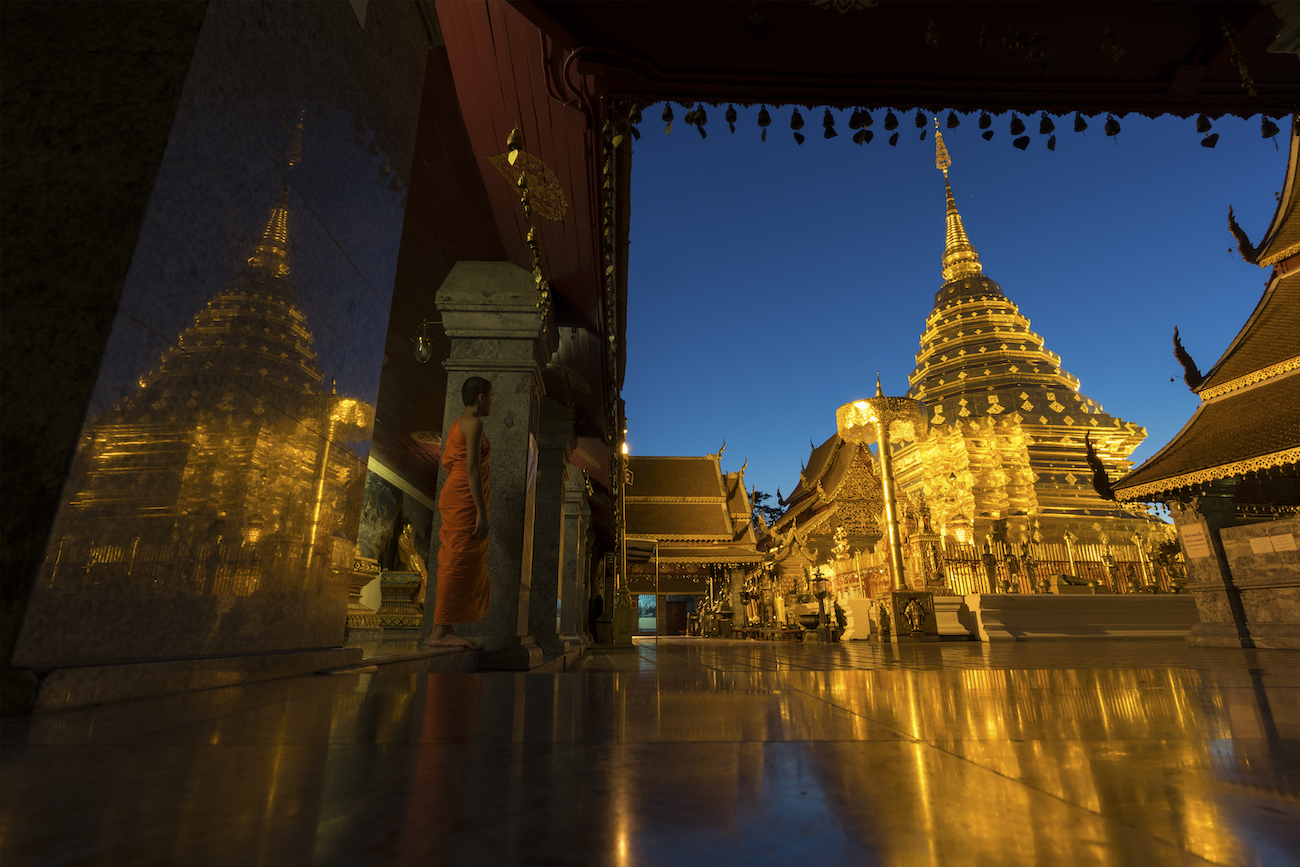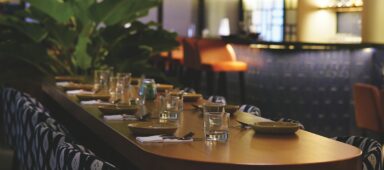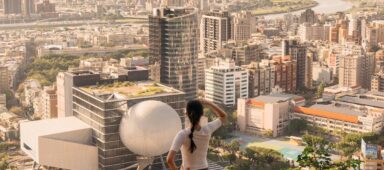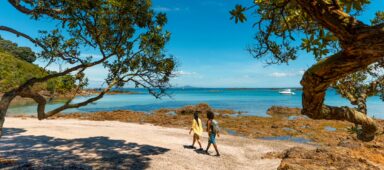Chiang Mai will be opening its borders to travellers in November. Start planning your getaway with these top sights and activities for every palate
In partnership with TAT Malaysia
After Phuket, Koh Samui and a number of other southern islands, Thailand continues its gradual reopening to vaccinated tourists. Next on the list is Chiang Mai in November, one of four major reopenings. Thailand’s second-biggest city is home to an international airport, lots of mountainous landscapes and an ancient Lanna culture that sets it apart from the country’s other regions. Chiang Mai is also beloved for its laid-back pace, rich arts scene and urban vibe, ensuring there’s something for everyone here.
Here’s a refresher on some of the amazing offerings that makes Chiang Mai so special for visitors.
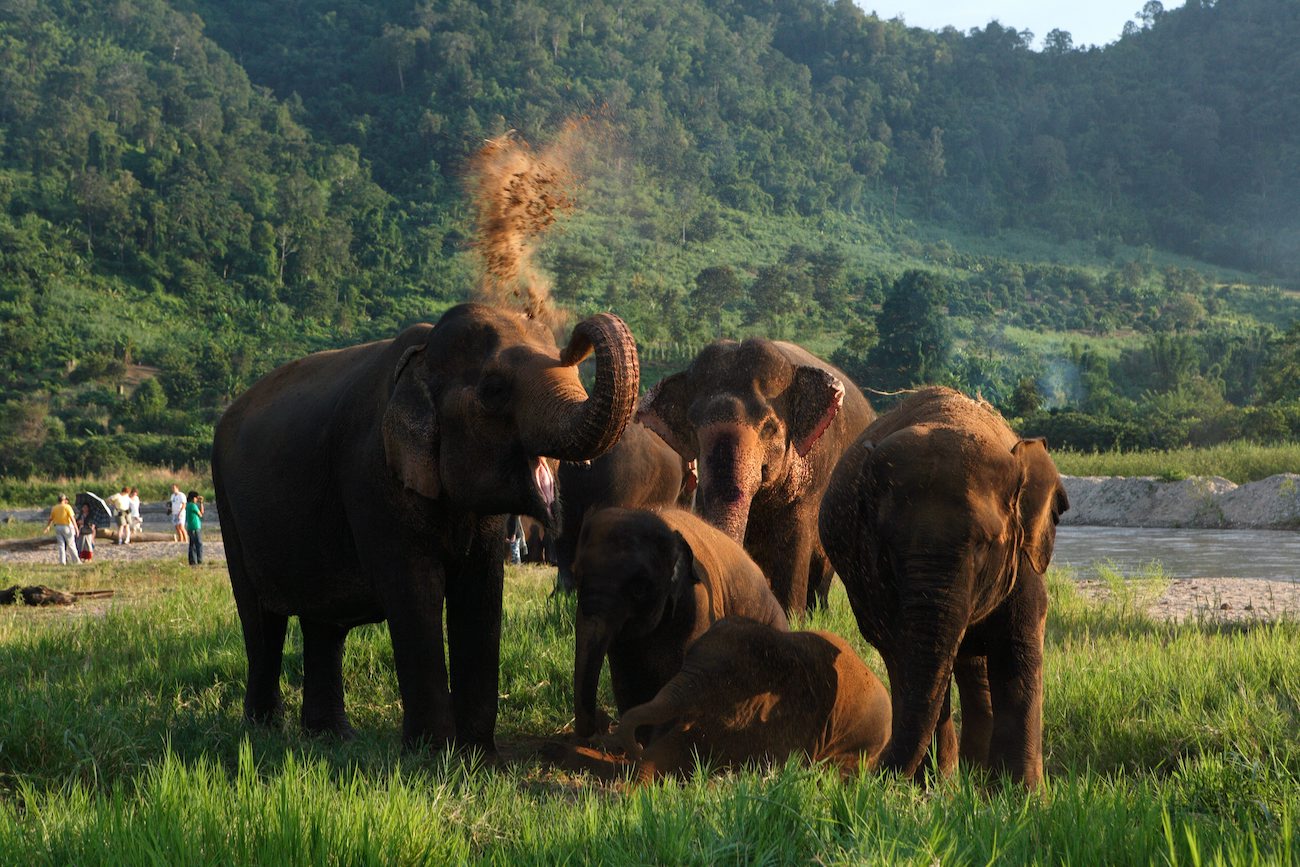
Close encounters with wildlife
Head to the Elephant Nature Park, a vast rescue centre where you can spend the day bathing and feeding these gentle giants, many saved from the entertainment or logging industries. The admission cost includes roundtrip transfers from your hotel, English-speaking guides, snacks and more. For ethical reasons, Elephant Nature Park does not offer circus tricks or rides, but the staff will help you snap a picture or two with the elephants.
For an after-dark outing, check out the Chiang Mai Night Safari. There are three animal zones you can explore via open tram or on foot, each with stunning animals such as jaguars, white striped tigers, antelopes, zebras and many more. Stay back afterwards for the laser light show, complete with catchy music and sound effects.
Mountains and waterfalls galore
No trip to Chiang Mai would be complete without a hike through Doi Inthanon National Park, home to the namesake mountain that reaches 2,565 meters above sea level. The weather is cool all year round, which makes hiking and camping here a joy. Highlights include several Buddhist stupas, the Mae Yai, Siriphum and Wachiratan waterfalls, and enough lush foliage for you to enjoy a little forest bathing. Another must-see is the multi-tiered Bua Tong Sticky Waterfall. Its name comes from the limestone build-up on the rocks, which creates plenty of friction that prevents you from slipping. Bring your swimwear for a well-earned and refreshing dip in Bua Tong’s cool waters.
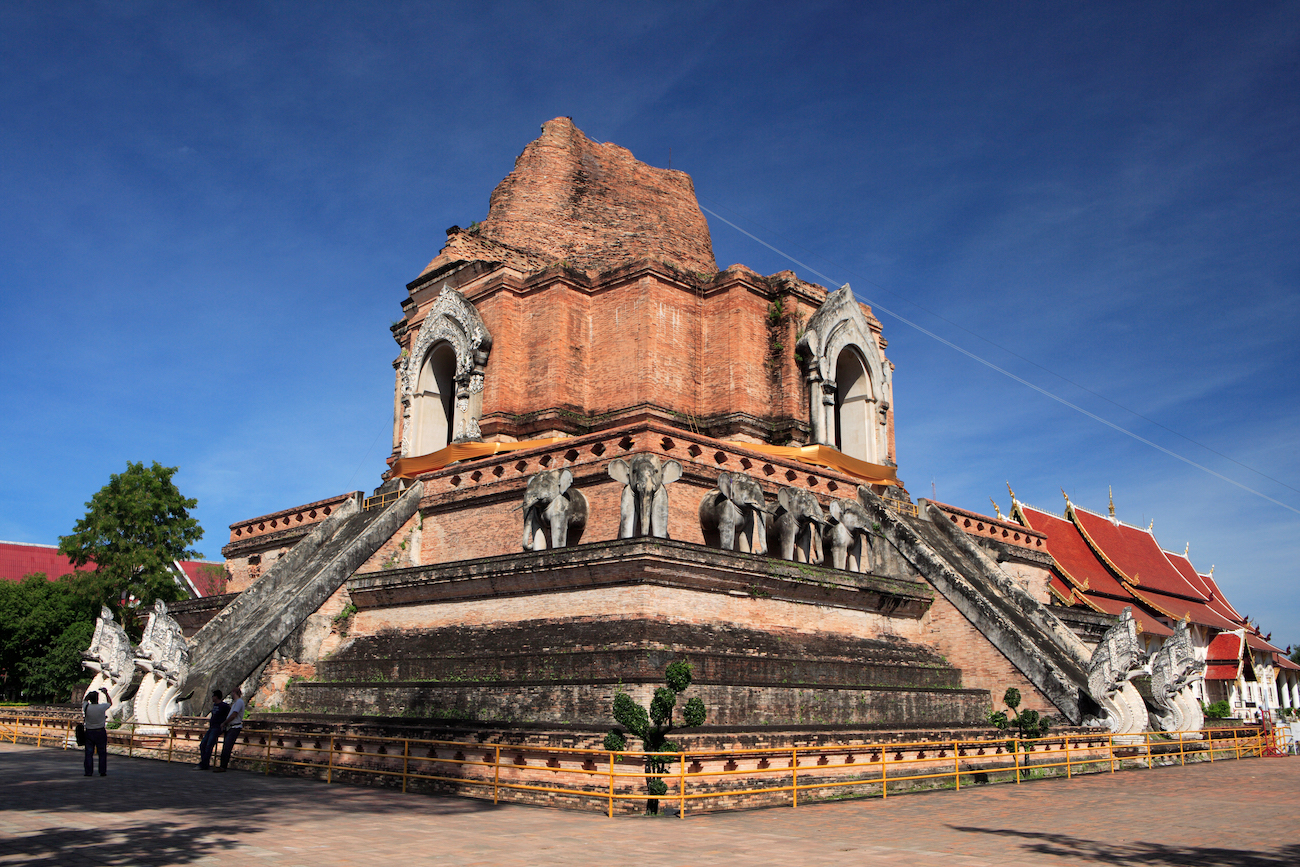
Rich spiritual traditions
Perhaps the biggest symbol of Chiang Mai’s spiritual fabric is Doi Suthep, a regal mountain with stunning views of the northwestern end of the city and site of Wat Phra That Doi Suthep, one of Thailand’s most spiritually significant places. The temple is a focal point for pilgrimages and is crowned by an elaborate stupa covered in gold leaf. Chiang Mai’s walled Old City is also a great place to see the city’s religious foundations. Look out for Wat Buppharam’s Burmese influences, Wat Chiang Man’s Lanna architecture – think red lacquer, gold leaf and mosaics – and Wat Chedi Luang, which houses a stunning principal Buddha image, a giant gum tree that guards the temple’s entrance, as well as the city pillar, called Ithakhin, said to be erected in 1296 and brought to its current location in 1800.
Students of Buddhism and Thai culture also come to Chiang Mai for sak yant, a tattoo-based artform that is said to accord its wearer with spiritual blessings and protection. This sacred, traditional tattoo is often given by an ajarn (master or teacher) and you can make appointments with reputable masters on a sak yant tour.
Less overtly spiritual, Thailand’s iconic martial art Muay Thai has spiritual roots going back to the 16th century. In Chiang Mai, it’s not uncommon to see the locals flocking to Muay Thai matches at the Thapae Boxing Stadium or Kawila Boxing Stadium. The latter often sees renowned Muay Thai fighters known for their mastery, and observing the pre-fight prayers and customs is an added treat for visitors.
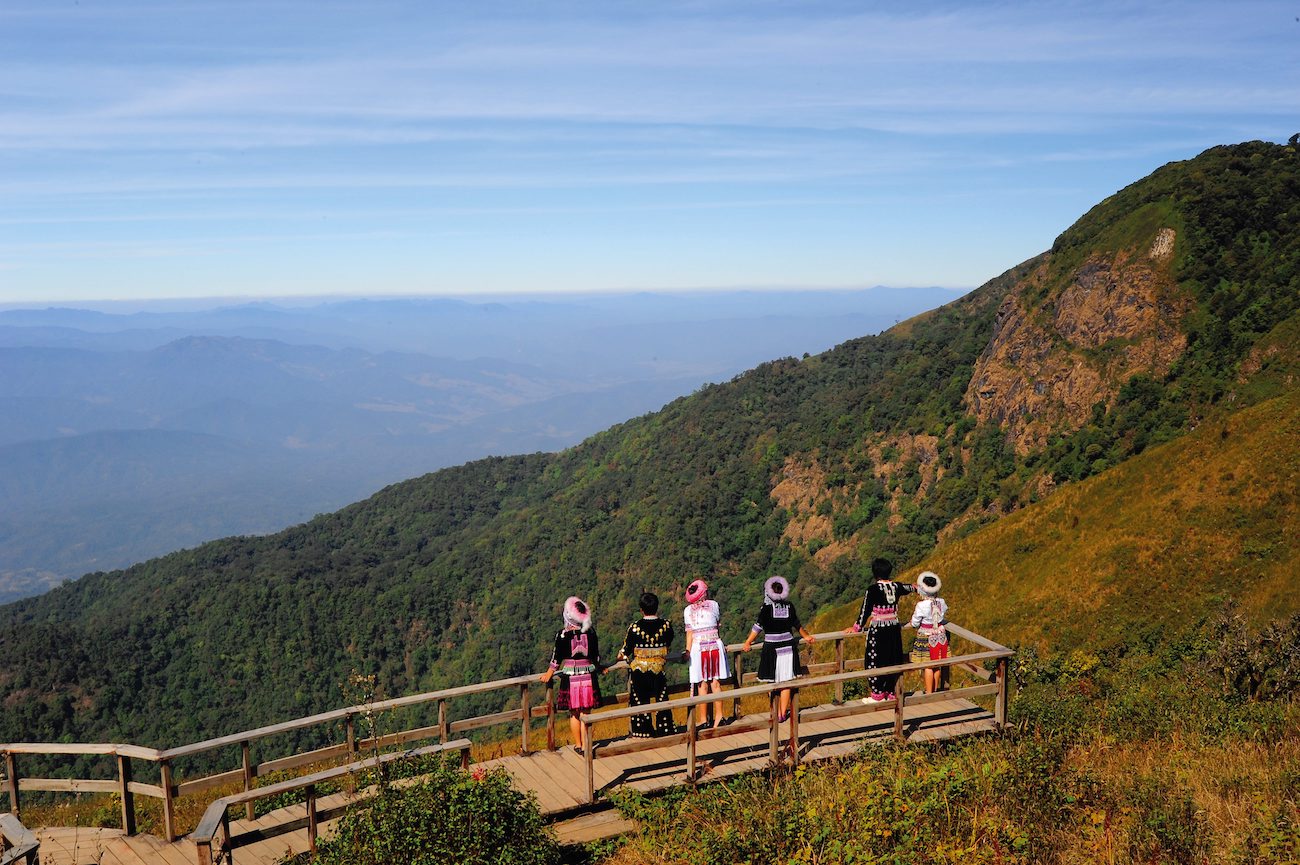
Tribal heritage and village visits
Chiang Mai and its surrounding regions are home to various hill tribe villages, and many are open to visitors. Start at Doi Pui Village, a tiny Hmong hamlet that houses a traditional hill tribe home and information of its history. You can also go to Padung Village near Chiang Dao cave, where the women are known for wearing brass rings around their necks, wrists and ankles. The village also retails souvenirs if you’d like something to remember your trip by. If you’re staying in the city, be sure to check out the Lanna Folklife Museum to learn about the lives and culture of the Lanna people through 18 different exhibitions.
A diverse food scene
Thailand’s street food needs no introduction, and many say you’ll find the best Chiang Mai has to offer at the Chiang Mai Gate market. The vendors set up stalls at night, and you’ll find everything from pad kra pow (spicy meat and basil) to classic mango sticky rice and khao soi, Chiang Mai’s famous curried noodle dish. For a deeper dive into the cuisine of Chiang Mai, look out for other classics such as the spicy and herbal sai oua sausage, the green and smoky nam prik num relish and the Burmese-leaning gaeng hung lay curry. And for third-wave coffee shops, Instagrammable café fare and other international dining experiences, explore the restaurants of Nimmanhaemin Road near Chiang Mai University.
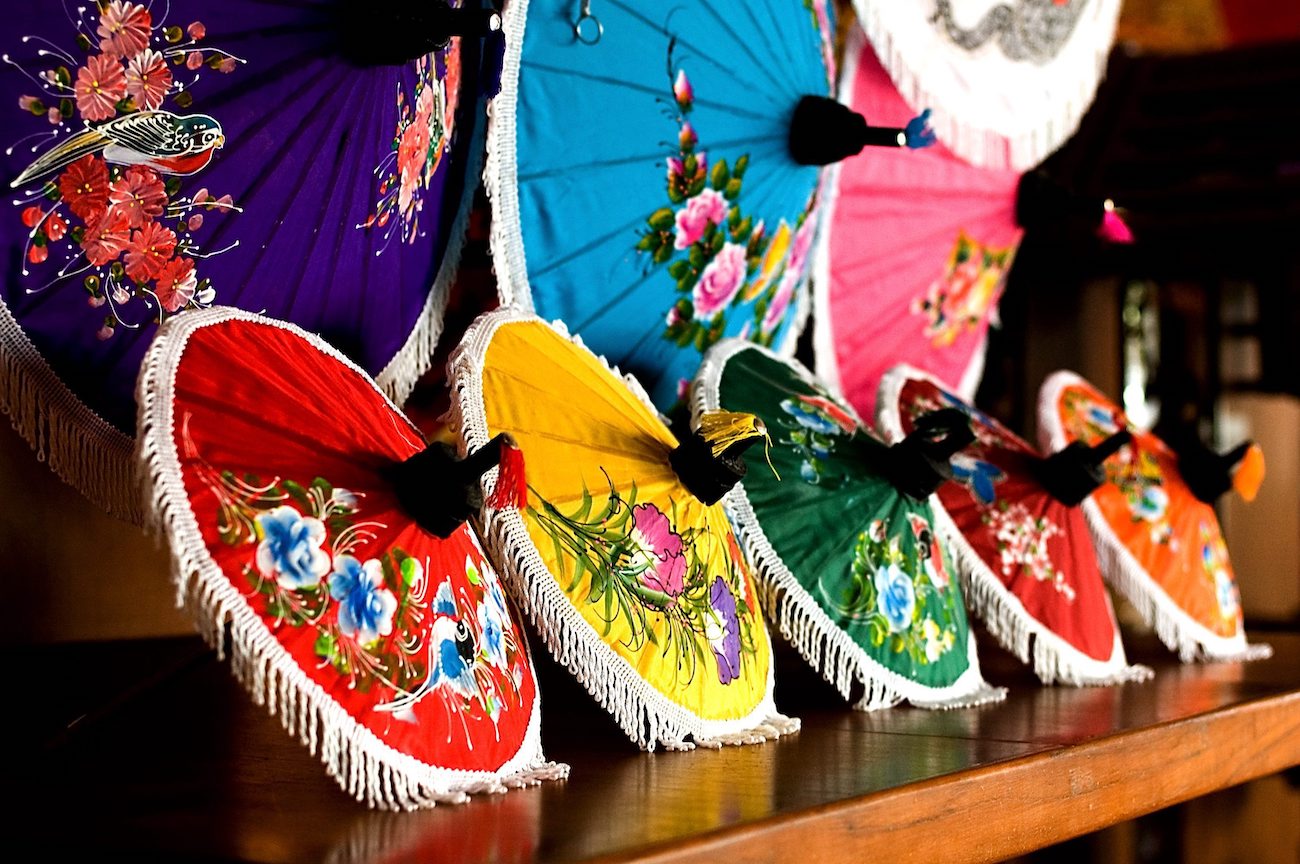
Unique handicrafts and souvenirs
Hit up the Sunday Walking Street in the Old City for handcrafted lamps, dolls and figurines as well as jewellery, clothes and even Christmas ornaments. Or you can drop some baht on a great selection of clothing and scarves, carvings, homeware and much more at the Night Bazaar on Chang Klan Road. Bring your haggling skills and come early to beat the crowds.
Experience paper umbrella crafts – one of Chiang Mai’s cultural symbols – at Bor Sang Village. Visit the local factory where artisans assemble handpainted umbrellas made from sa (mulberry bark) paper, and then shop for tiny cocktail umbrellas, garden patio parasols and more at the many stalls around the village.
For more up-to-date information on Chiang Mai’s reopening and entry requirements, visit the TAT’s Newsroom . In Malaysia, the TAT Malaysia Facebook page is the go-to resource for official updates and even some exciting giveaways. Alternatively, you can email your queries directly to the TAT at info@tourismthailand.my.
